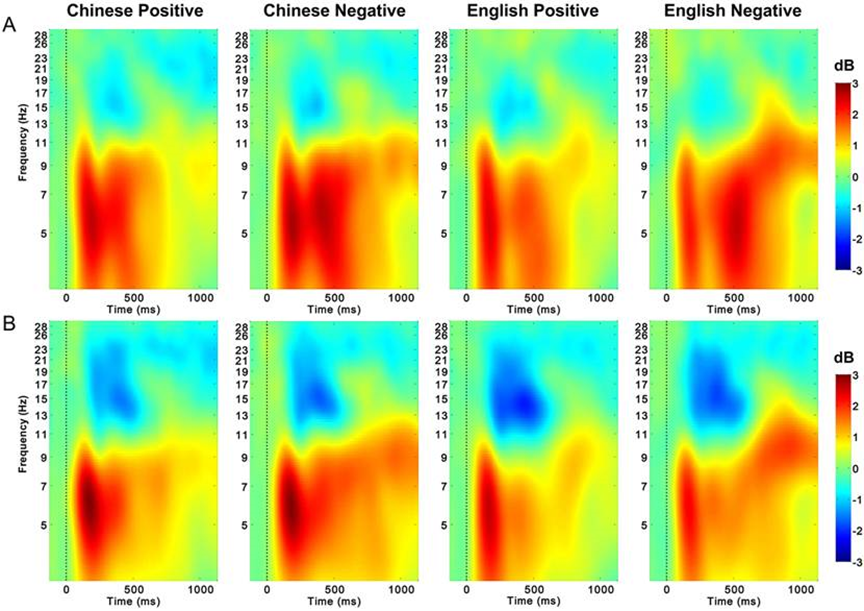Recently, Professor Gao Shan's research team from the Advanced Institute of Humanities and Social Sciences and the School of Foreign Languages at the University of Electronic Science and Technology of China published their latest research findings in the field of psycholinguistics. The study, titled Time-Varying Neural Oscillations Underlying the Foreign-Language Effect on Risk-Taking, was published in Journal of Psycholinguistic Research (Impact Factor: 1.6, CAS Journal Ranking Q2).

Figure: Grand average event-related spectral perturbation maps for positive and negative feedback in Chinese and English contexts
Building on the team's previous research (Gao et al., Journal of Neuroscience, 2015), this study further elucidates the neural mechanisms through which foreign languages influence risk decision-making. In the gambling task designed for the experiment, participants were required to choose either to “participate” or “withdraw” in each round. After making their decisions, the outcomes (win or loss) were presented to the participants in their native language (Chinese) or a foreign language (English). Time-frequency analysis of the participants’ EEG signals revealed the following: During the feedback processing stage, English (compared to Chinese) elicited stronger alpha-band suppression in the parietal-occipital regions (particularly in response to positive feedback), indicating that processing a foreign language requires more attentional resources. Simultaneously, English feedback resulted in reduced theta-band synchronization in the frontal lobe, reflecting significantly diminished emotional responses. After receiving positive feedback in English, theta-band synchronization during the decision-making stage further decreased, and this neural difference was significantly correlated with a reduction in the proportion of “participate” choices observed in behavior. Mediation analysis demonstrated that the increased cognitive load of processing foreign language feedback (enhanced alpha suppression) indirectly reduced risk-taking tendencies after winning a gamble by weakening emotional responses (reduced theta synchronization). This study supports a sequential model involving cognitive and emotional pathways, providing neural evidence for the emotion-attenuation mechanism underlying the “foreign language effect”.
Link to the original paper: https://rdcu.be/ezh2J